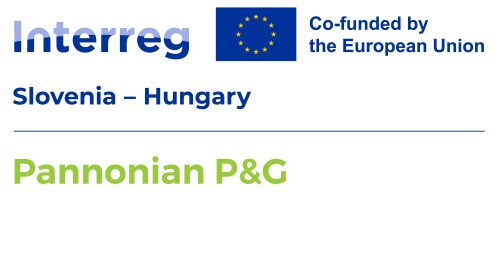Project overview
Protecting and restoring biodiversity and well-functioning ecosystems is key to building and sustaining healthy and resilient societies, while biodiversity represents the cornerstone for maintaining food safety. Ecosystems with high levels of diversity are more stable, which means that protecting biodiversity allows ecosystems to better sustain themselves and recover faster from unpredictable events. Increasing demands for comfortable living standards and population growth, require ever greater exploitation of natural resources. Pressure on the environment is reflected in increased pollution, deforestation of natural habitats and the proliferation of non-native invasive species. The inevitable consequences are seen in the extinction of species and consequent rapid decline in biodiversity. These challenges are also characteristic for the cross-border of Slovenia and Hungary. In particular, native plants are endangered by habitat alteration (intensive agriculture, overgrowth and urbanisation), climate change, non-native invasive species, commercial exploitation and direct destruction, including harvesting. Nature is not bothered by national borders, moreover, the described challenges also require a holistic approach that goes beyond humanly defined boundaries.
The Pannonian (P)roduct & (G)ardens project offers a sustainable approach for the conservation, use and sustainable management of native or traditional plants via planned project activities. Through pilot activities, the partnership is establishing a supportive environment for the introduction of biodiversity-friendly gardens as well as products, through planting, cultivation and processing of exclusively indigenous plants, which contributes to maintaining a balance between people and nature and enhances the ecological connectivity of the cross-bored area, as well as the natural environment and biodiversity. During project duration, 4 learning gardens on 4 selected locations will be established: Prosečka vas, Prosenjakovci, Monošter and Vörösmajor.
Healthy ecosystem services can provide new biodiversity-based business opportunities that not only provide new jobs but also contribute to the conservation of biodiversity and community development. For such purposes, sustainable supply chains and consumption patterns that do not exceed nature’s capacity are needed to conserve biodiversity, thus the entrepreneurial part of biodiversity is therefore very important. The Pannonnian P&G project also introduces the concept of biodiversity-friendly products, which is linked to awareness raising of end products that do not compromise biodiversity, i.e. do not exceed nature’s capacity. Through the introduction of these pilot cross-border concept, target groups are made aware of the benefits of buying from local suppliers, planting indigenous plants and removing invasive ones, thus giving growers and farmers a practical demonstration of how to create and launch biodiversity-friendly products.
From the viewpount of biodiversity conservation the innovative aspect of the project is mirrored through the demonstrative aspect learning gardens and biodiversity-friendly products. The pilot approach also serves as a joint regional cross-border didactic tool, where knowledge transfer and information are at the forefront, be it the local community, stakeholders, local farmers or educational institutions.The demonstration measures implemented are enriching natural diversity of the cross-border area (planting of indigenous or traditional plants, establishing pilot learning gardens, introducing sustainable cultivation measures for plants, creation of common biodiversity-friendly products, etc.), while shifting awareness of local communities and guiding them towards a more sustainable way of life (demonstration of sustainable products/approaches that do not compromise biodiversity), thereby improving the quality of life in the programme area. Project’s added value is reflected in the creation of a working environment at the bilateral level, where, in addition to the partners, stakeholders, decision-makers and target groups are actively involved. Thus is crucial to obtain common cross-border solutions, while the necessity for cross-border cooperation also stems from the need for complementary knowledge & relevant expertise, aimed at creating development opportunities benefiting the entire cross-border region. The success of planned objectives for increased conservation of biodiversity and proactive implementation of preventive measures is dependent on awareness raising. Through different awareness-raising approaches, diverse materials and joint events, the partners will inform target groups of the border area about the introduced measures. The long-term objective is aimed at raising awareness regarding the importance of conservation measures, strengthening cross-border ecological connectivity and transferring knowledge for successful, collective and independent taking of initiative.
Project achievements and materials
In this section you can find useful materials related to the project.
- File 1
- File 2
Project duration
Project start date:
1.11.2024
Project end date:

